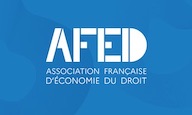We investigate experimentally whether individuals engage in moral accounting through real effort, depending on whether or not they are directly responsible for an initial unjust outcome. Participants were divided into a treatment group, where they had the option to appropriate money designated for charity, and a control group, where the computer determined whether that money would be transferred to the participant. In the subsequent stage, participants engaged in two real-effort tasks, one benefiting the charity and the other involving personal gain. Our findings reveal that individuals who personally took the money in the first stage, compared to those who were unjustly enriched (when the computer allocated the money to them), demonstrated a greater investment of effort in the task benefiting the charity. This phenomenon, known as moral accounting, suggests that individuals attribute more moral weight to their own decisions and are motivated to balance the scales by exerting additional effort for the charity. These findings have implications for the efficiency of legal frameworks, particularly in tort law versus unjust enrichment, as those who actively cause harm might balance their harmful behavior through pro-social effort whereas those who are simply unjustly enriched do not follow a similar pattern. Thus, the findings provide a new economic argument in favor of unjust enrichment lawsuits, as these seem to target individuals who will not otherwise balance the unjust outcome on their own.
|
Moral accounting, real-effort, and unjust enrichment: experimental evidence
1 : Victoria University of Wellington
Pipitea Campus, Lambton Quay, Wellington, New Zealand -
Nouvelle-Zélande
2 : Institute of Law and Economics, University of Hamburg
3 : University of Wrocław [Poland], Department of Psychologz
(UWr)
Pl. Uniwersytecki 1 50-137 Wrocław -
Pologne
|

 PDF version
PDF version
